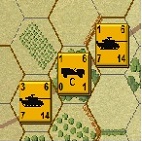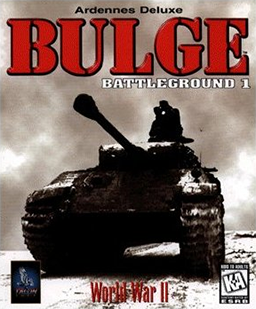Crossroads
Posts: 17372
Joined: 7/5/2009
Status: offline

|
quote:
ORIGINAL: budd
So then AGE engine games not created by AGEOD, you would consider mods? There's also those two Hearts of Iron games Darkest Hour and Arsenal of Democracy, all sold as new games. The Hearts of Iron games may be a weak example as i believe those were marketed as expanded Hearts of Iron games. Again there are plenty of Dev teams that license other companies engines and expand those engines and release those products as new games. Using other people's engines is what is done these days it seems. It's what Slitherine/Matrix does, Archon their new engine is being used by multiple dev teams altered and changed and added to for whatever game there making. I just don't see the difference to what is being done on these games. All those dev teams using other people's engines surely cant be all mods, can they 
I do believe you hit the nail in the head there, budd. There's rarely any computer games out there that isn't base on some available game engine, which is used to construct new games with new context. The M/S Archon engine is a good example, too.
Campaign Series of the old was a living codebase rather than a game engine, come to think of it.
Talonsoft's East Front (1997) was the first one out, game a bit rushed it seems, but proved to be quite popular still. The codebase saw some evolution and the next game compiled from that codebase (and the accompanying data and graphics) was West Front (1998). That codebase was put aside for maintenance purposes, new coding was done, and East Front II (1999) saw daylight. Again, at that time a baseline of the code was put aside for maintenance, work continued on the codebase, and Rising Sun saw day light in 2000. Three WW2 games quite similar, but to have an update to them all, three different codesets needed to be tweaked and compiled and released. Then, some new coding, new capabilities, and Divided Ground came out in 2001. Four games, four different code bases.
Matrix Games's John Tiller's Campaign Series in 2007 was basically a "Gold" set of all three WW2 games, compiled to new operating system with an then up to date MS VC++ development environment. It saw some minor code tweaks as well, during the JTCS v 1.x era, up to JTCS 1.04 (for all three games).
What we've done very systematically instead, from the beginning, was to get rid of the "living code base", as it is not the way to do things anymore, and to create a true game engine instead. From JTCS 2.0 on we had that for the first time: just one engine, and one code set to keep up to date, with flags and buttons to construct any of the three WW2 era games. It was a bold attempt, but one in that we as a team succeeded.
With that as a starting point, we then set our roadmap to enhance all aspects of the game. A plan to remodel the graphics engine. A plan to remodel the data. A plan to support all Campaign Series games going forward.
From game engine point of view, we decided to actually have two Campaign Series game engines: "WW2 Engine" and "Modern Engine".
CS Middle East 1.0 was the first game out with the Modern CS engine. There's not a single code line from Divided Ground, it is all based on the improved WW2 Engine of the JTCS 2.x family, but with ties cut to CS of the old. No longer compatible.
Modern CS Engine is and continues to be evolving as we continue with the Modern set of games and with their DLCs to come: Middle East, Vietnam, and Cold War. As the Modern CS engine gets a newer version, older games will have a free update to move to this latest level. Also, the game editors continue to be available so that community can continue to develop their own scenarios while at it.
CS East Front 1939-1941 will be the first game out with the new WW2 CS game engine. Similar story here: East Front, West Front, Pacific Front, with the WW2 CS Engine similarly evolving and being made available to those owning an earlier game.
We could have just kept churning new games with the codebase, leaving any new game to become obsolete in a few years. Instead we decided to take the long road, and to first create the game engine, and then to use the engine to construct the new game (plus the DLC approach and keeping the older games updated to latest game engine version).
We're already seeing the benefits of this. While CS Vietnam is being developed, our automated CS team development environment, with a push of a button, creates a new BETA of the Vietnam game, but at the same time also builds the latest BETA of the to-be-updated Middle East game. Not only that, it builds a new Cold War ALPHA as well, with not much (not any) game content / scenarios there, but the latest graphics are there, the Modern set of country OOBs are there, and all the editors are there to support any development once the call to arms is made. It's pretty cool.
Also, at the same time, an ALPHA for the East Front is build, using the WW2 Game Engine flags and options. There's already five countries there (German Reich, Poland, Soviet Union, Hungary, and Finland), and the first scenario versions are already there. That said, most work is done with creating new maps at the moment, but hey-ho, that's allright as the release date for EF is not until 2020.
This all takes some time. But also, it's pretty cool to see this long term plan coming alive now 
_____________________________
|
 Printable Version
Printable Version

















 New Messages
New Messages No New Messages
No New Messages Hot Topic w/ New Messages
Hot Topic w/ New Messages Hot Topic w/o New Messages
Hot Topic w/o New Messages Locked w/ New Messages
Locked w/ New Messages Locked w/o New Messages
Locked w/o New Messages Post New Thread
Post New Thread